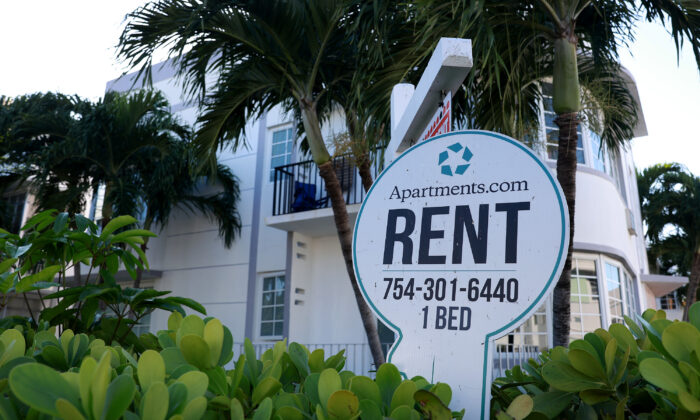
A rent-burdened status means paying more than 30 percent of total income on rent and utilities. “I know a lot of people who are paying 50 percent toward all types of housing. I’ve always said you need to try to keep your housing costs below 20 percent, not just 30 percent.
Whether you rent or buy, keeping your housing costs as low as possible is the key to getting ahead,” Laura Adams, a financial adviser, podcaster, and spokesperson for Ibuyer.com, told The Epoch Times. She said that while times have rarely been easy for young homebuyers, today, there is a mix of economic factors that make it even tougher to afford an apartment or buy a home, in addition to personal habits she says are linked to Gen Z.
“There’s no doubt housing prices are at a record level of unaffordability. And it seems that there are other factors in play. Yes, housing prices are high, but home insurance and property taxes are creeping up in many areas, and young people are struggling with inflation for the basics like groceries and power,” she said.
“But the other issue is Gen Z are not preparing themselves for home ownership, and you have to be a good saver to have the amount of money needed for closing costs. They’re just not good savers.” According to the Zillow/Street Easy study, Gen Z’s current ability to pay for apartments and housing generally aligns with what millennials faced a decade earlier.
In 2012, 60.2 percent of millennials nationwide spent more than 30 percent of their income on rent, with the rent burden peaking at 62 percent in 2011. That rate dropped to 55 percent by 2019.
However, StreetEasy senior economist Kenny Lee contends that the current predicament being faced by Gen Z renters should be viewed as something other than a regular occurrence. “It’s so common for us to have this experience of struggling to afford rent on an entry-level salary, and that memory is also common for many millennials who became young adults since the 2010s. But I really want to challenge this notion that it’s normal, and I really don’t think it has to be that way,” he told The Epoch Times.
“In 2011, the labor market recovered, but rent fell. What really changed things in this case was the pandemic; as the economy came out, the surging rental demand outstripped the supply, leading to soaring rents in so many rental areas. All of that raised the burden on young renters who are trying to make ends meet.
” According to the Zillow/Street Easy study, in 17 of the country’s 30 largest metro areas, millennial renters in 2012 were more likely to experience rent burden than Gen Z renters in 2022. However, Lee pointed out that in each of those 30 metros, at least half of Gen Z renters are finding themselves rent-burdened. He is, however, hopeful that the rental market will eventually make rents more affordable for young renters.
“Across the U.S. since 2019, rents have grown 1.
5 times faster than wages, and in areas like New York City, it’s 7.4, representing the largest gap between rent and wage growth in the U.S.
,” he said. “But rent growth has been slowing, and the share of rental listings and landlords offering concessions has been rising. The nation’s rental market now is moving toward achieving a better balance between supply and demand.
” The September numbers represent the 14th consecutive month of year-over-year rent decline for studios to two-bedroom properties. Rents have decreased by $8, or 0.5 percent, year over year, with the median asking rent in the 50 largest metros at $1,743, down $10 from August and $17 lower than its August 2022 peak.
Adams believes that no matter the trends, young renters looking to buy and eventually get their financial lives in order are going to have to make sacrifices in this economy to get ahead. “They may have to make decisions like relocating to an area that’s more affordable, and not in the city,“ she said. ”The key is that if you can control your housing costs, that will unlock your entire budget.
You have to make sacrifices if home ownership is one of your goals. This generation, for example, loves to eat out all the time. Eating at home is not only going to make you healthier but wealthier.
It takes planning.”.














